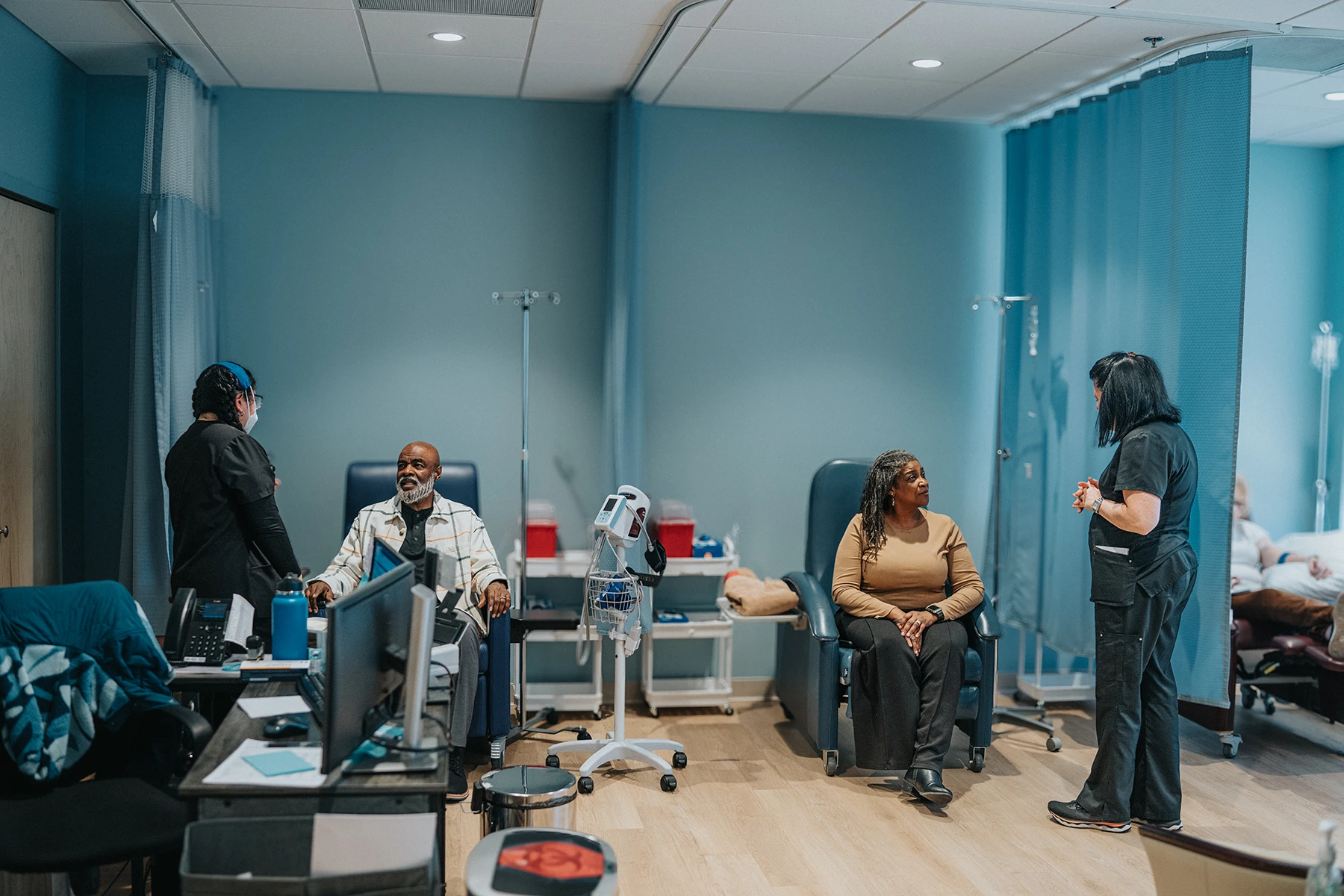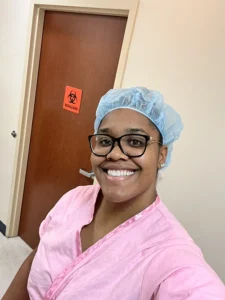Why I Said Yes: Three Patients on the Power of Cancer Clinical Trials

At first, Robin Anezin was hesitant to join a clinical trial for stage four melanoma that had metastasized to his liver. “You want the best chance to get cured, but at the same time, you think you might put yourself in more danger and not help yourself,” he says.

During a long conversation with his oncology team at Sylvester Comprehensive Cancer Center, part of the University of Miami Health System, Anezin asked countless questions about the trial aimed at improving outcomes in metastatic melanoma. He received clear, detailed answers, as well as a comprehensive packet describing potential side effects of treatment. “It’s scary when you see so many side effects,” Anezin says. “You think you will for sure have them all, and your brain isn’t processing it.”
He told the team he’d sleep on it. Within 24 hours, he’d made his decision.
“It was a difficult decision,” he says. “But I told them, ‘Let’s do it!’”
He immediately felt relieved to have a plan.
Now, two years later, his latest scan showed no evidence of disease. “We can say I’m cured!” he says.
Anezin, a patient of melanoma expert Jose Lutzky, M.D., director of Cutaneous Oncology Services and Cutaneous and Ocular Oncology Site Disease Group lead at Sylvester, is among the thousands of Sylvester patients enrolled in clinical trials who are helping not only their prognosis but that of many others with various types of cancer.
Cured by a clinical trial
Anezin quickly began phase one, a three-month combination immunotherapy regimen. “I honestly felt no side effects, so besides going to the hospital every three weeks to get injections, everything was totally normal,” says the architect, 51. “I consider myself lucky because most people don’t react that well.”
After a one-month break, he entered phase two, 16 cycles of immunotherapy over 18 months. “From my very first step into the front door until I left, everybody was nice and helpful,” he says. “I am a curious person so I asked a lot of questions and everyone was always ready to answer any question I had. That made me feel comfortable and reassured.”
His benefit from the trial? “To be cured!” Anezin says. “This is really important! If you look at the statistics, if I didn’t take this chance, my chances would be much lower so I took the best chance I had and I’ve been very lucky. I wish it won’t happen again, but if I am ever offered a clinical trial, I would not hesitate and take it!”
Doctor enrolls as a patient.

Jessica Firdman Moore, M.D., was a medical resident with a passion for reproductive health advocacy and an interest in oncology when she was diagnosed with stage 2B high-grade serous ovarian cancer. When she received a phone call after her first clinic visit about enrolling in the Trial of Exercise and Lifestyle in Women With Ovarian Cancer (TEAL) clinical trial with principal investigator Tracy Crane, Ph.D., RDN, director of lifestyle medicine, prevention and digital health and co-lead of the Cancer Control Program at Sylvester, she didn’t have to think long. “I work with cancer patients all day and I work on clinical trials in my research life, so when it came time for me to consider this, of course I wanted to do it,” she says. “It was a no-brainer.”
Dr. Moore, randomized to the intervention group, was provided education materials, a nutritionist and an exercise physiologist. During weekly meetings from September 2024 to February 2025, she completed exercise routines and shared her food blog and workout data from her Fitbit. “I definitely believe in the hypothesis of the trial that if you are eating better and moving, you’ll be able to better conquer whatever comes your way in life,” she says. “There was no potential harm to me by participating so it was an easy decision for me to help science along. There are a lot of different ways patients can get involved in research, and it’s definitely empowering.”
Dr. Moore found the nutritionist particularly helpful because of chemotherapy’s gastrointestinal side effects. “It was a huge resource every patient should have so hopefully this research will show the benefit in numbers and make the argument for providing patients with a personal nutritionist and personal exercise physiologist,” she says.
She enjoyed access to the trial’s research assistant who, while not part of the official medical team, answered her questions and offered support. “It’s hard when you have a new diagnosis to even hear about things like clinical trials because you’re grappling with this new world,” she says. “But if you have the space and energy, clinical trials can be so rewarding for you and the future of our society.”
Clinical trials help your community.

When Miller School Ph.D. candidate LaShae Rolle was diagnosed with multicentric breast cancer at age 26, she had no risk factors and was caught by surprise. Rolle, who has a background in epidemiology, learned about a clinical trial studying the link between cancer and ancestry run by Sophia George, Ph.D., a researcher and associate professor of obstetrics, gynecology and reproductive sciences at the Miller School. “I jumped on it,” she says. “I want to improve the overall clinical pool and help others who are just like me.”
The clinical trial process, she says, was simple. She answered questions and donated blood, as well as cancerous tissue from her surgery, for genetic testing that will be shared with her when complete.
Rolle, who finished her initial treatment and is planning for reconstruction and hormonal maintenance therapy, is also enrolled in a clinical trial studying cancer and mental health. “If you can help yourself or others, consider that and go ahead and sign up!” she says.
Written by Lauren Comander, a contributor to Sylvester Comprehensive Cancer Center.
Tags: Cancer research participation, Clinical trial benefits, Innovative cancer therapies, Patient empowerment in trials, Sylvester Comprehensive Cancer Center
